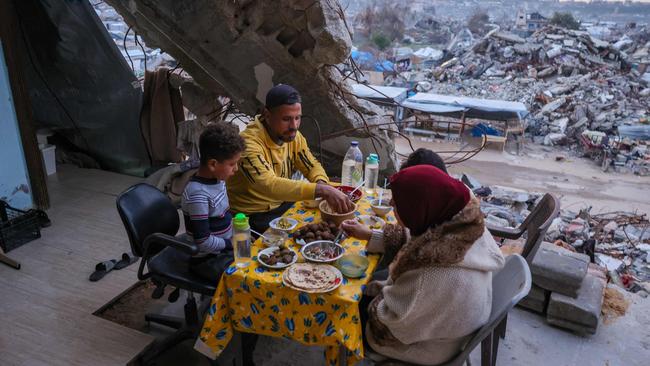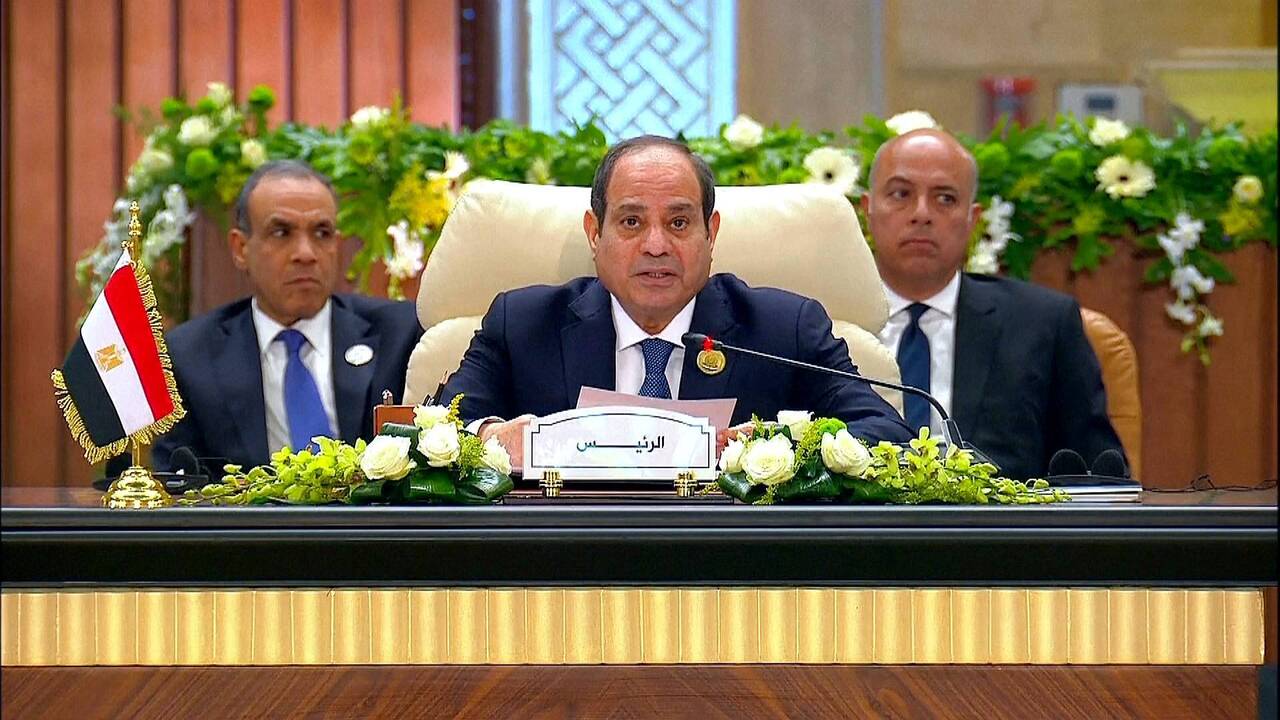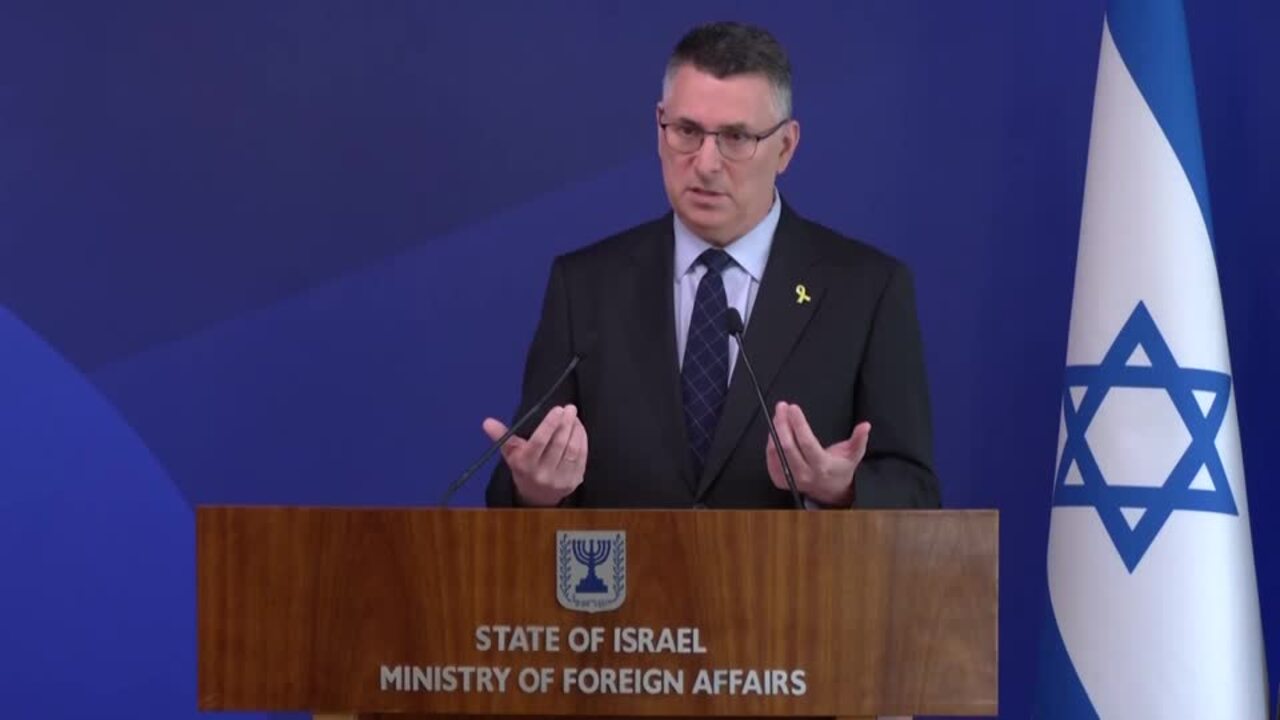White House rejects Arab leaders’ post-war Gaza plan
The White House said the Arab plan for Gaza ‘doesn’t address reality’ and reaffirmed its commitment to Donald Trump’s plan to take over the enclave and relocate all of its two million residents.

The White House has rejected a plan by Arab leaders for the post-war management of Gaza and reaffirmed its commitment to US President Donald Trump’s plan to take over the enclave and relocate all of its two million residents.
National Security Council spokesman Brian Hughes said the Arab plan released on Wednesday (AEDT) “does not address the reality that Gaza is currently uninhabitable and residents cannot humanely live in a territory covered in debris and unexploded ordnance[s]”.
“President Trump stands by his vision to rebuild Gaza free from Hamas,” he added.
“We look forward to further talks to bring peace and prosperity to the region,” Mr Hughes said, appearing to leave the door open for further talks with Arab allies.
The prospect of the Palestinian Authority (PA) governing Gaza remains far from certain, however, with Israel having ruled out any future role for the body, and Mr Trump having closed the Palestine Liberation Organisation liaison office in Washington during his first term while stepping up support for Israel.
The plan, however, does not explicitly tackle the issue of Hamas and how the terror group would be disarming, leading to criticism from the US and Israel, which are demanding that Hamas be fully dismantled.
“President Trump has been clear that Hamas cannot continue to govern Gaza,” Mr Hughes said. “While the president stands by his bold vision for a post-war Gaza, he welcomes input from our Arab partners in the region. It’s clear his proposals have driven the region to come to the table rather than allow this issue to devolve into further crisis.”
Shortly after returning to power in January, Mr Trump triggered global outrage by suggesting the US “take over” the Gaza Strip and turn it into the “Riviera of the Middle East”, while forcing its Palestinian inhabitants to relocate to Egypt or Jordan.
The Arab League summit in Cairo aimed to offer an alternative to that vision, a day after Israeli Prime Minister Benjamin Netanyahu reiterated his support for Trump’s proposal.
A spokesman for Israel’s Foreign Ministry, Oren Marmorstein, posted on X that the Egyptian plan “fails to address the realities of the situation” and said the summit’s joint communique does not mention Hamas’s October 7, 2023 attack that sparked the war or condemn the terrorist group. The plan, he said, remains “rooted in outdated perspectives”.
Mr Marmorstein reiterated Israel’s support for Mr Trump’s plan to resettle Gaza’s population elsewhere, describing it as “an opportunity for the Gazans to have free choice based on their free will”.

Egypt’s Foreign Minister Badr Abdelatty blasted Israel’s rejection as “unacceptable,” describing its position as “stubborn and extremist”.
“There will be no peace neither to Israel or to the region” without establishing an independent Palestinian state in accordance with United Nations resolutions, he said, adding that “Israel violates all international law rules … the international law must be imposed”.
“No single state should be allowed to impose its will on the international community,” Mr Abdelatty said.
In a final communique, the summit announced the adoption of a “comprehensive Arab plan”, urging the international community to offer its support.
It said that “all these efforts are proceeding in parallel with the launch of a political track” towards Palestinian statehood, which Israeli leaders have opposed.
The statement also welcomed “the Palestinian decision to form a Gaza administration committee under the umbrella of the Palestinian government”.
It announced the establishment of a trust fund to pay for the territory’s reconstruction, saying it would “receive financial pledges from all donor countries and financing institutions” to carry out projects.
The summit also called on Palestinian representation to be unified under the Palestine Liberation Organisation, an umbrella group that is the dominant political force within the Palestinian Authority and which excludes Hamas.
Hamas, which sparked the war in Gaza with its October 7, 2023 attack on Israel, said it welcomed the summit’s plan and the proposed formation of a temporary committee “to oversee relief efforts, reconstruction and governance”.
In his opening remarks on Tuesday, Egyptian President Abdel Fattah al-Sisi had said his country’s plan would ensure Palestinians “remain on their land”, but was careful not to criticise Mr Trump.
Calling for “a serious and effective political process that leads to a just and lasting solution to the Palestinian cause”, he added: “I am confident that President Trump is capable of doing that”.
Mr Abdelatty later told a press conference that Egypt would seek backing from Muslim nations at an emergency summit of Organisation for Islamic Co-operation (OIC) foreign ministers on Friday in Jeddah.
“We will also seek to endorse this plan so that it becomes both an Arab plan and an Islamic plan,” Mr Abdelatty said.

Palestinians, Arab states and many European governments have rejected Mr Trump’s proposal for US control of Gaza, opposing any efforts to expel its people.
Mr Trump recently appeared to soften his stance, saying he was “not forcing” the plan, which experts have said could violate international law.
The summit’s final communique warned against “sinful attempts to displace the Palestinian people”, saying they would “usher the region into a new phase of conflicts”.
For Palestinians, any forced displacement evokes memories of the “Nakba”, or catastrophe – the mass displacement in the war that led to Israel’s creation in 1948.
Mr Sisi said the new management committee, composed of Palestinian technocrats, was aimed at “paving the way for the return of the Palestinian Authority to the Strip”.
Veteran Palestinian leader Mahmud Abbas, also addressing the summit, said a working committee had been formed to prepare for the PA resuming its role in Gaza.
The PA had previously governed Gaza before losing power there in 2007 to Islamist Hamas.
From Cairo on Tuesday, UN chief Antonio Guterres endorsed the initiative to rebuild Gaza, adding the world body was prepared to “fully co-operate”.
Several Arab heads of state participated in the summit, though de facto Saudi ruler Crown Prince Mohammed bin Salman was notably absent, sending his top diplomat instead.
As the Middle East’s largest economy, Saudi Arabia’s backing would be essential to any regional reconstruction effort.
Egypt’s post-war plan
Egypt’s $53bn plan focuses on emergency relief, infrastructure restoration and long-term economic development, according to a draft document seen by AFP.
Early recovery phase
The draft plan, shared by a diplomatic source with AFP, outlines two phases: an early recovery phase and a reconstruction phase.
The early recovery phase, expected to last six months and cost $3 billion, would focus on “removing mines and unexploded ordnance, clearing debris and providing temporary housing”.
To address immediate shelter needs in that phase, Egypt proposes setting up seven designated sites within Gaza to house more than 1.5 million displaced people in temporary housing units, each accommodating an average of six people.
The plan also includes initial repairs to 60,000 partially damaged homes to accommodate 360,000 people.
Reconstruction phase
The reconstruction phase would take place in two stages over four and a half years.
The first stage, running until 2027 with a budget of $20 billion, would focus on rebuilding essential infrastructure, including roads, utility networks and public service facilities. It also calls for constructing 200,000 permanent housing units for 1.6 million people and reclaiming 20,000 acres of land.
The second stage, extending to 2030 at an estimated cost of $30 billion, aims to complete infrastructure projects, build another 200,000 housing units and establish industrial zones, a fishing port, a commercial seaport and an airport.
Funding
The plan proposes creating an internationally supervised trust fund to ensure efficient and sustainable funding, as well as transparency and oversight.
Cairo will also host a high-level ministerial conference to bring together donor countries, international and regional financial institutions, the private sector and civil society groups to secure funding.
Who will run Gaza?
A Gaza administration committee, made up of independent technocrats and nonpartisan figures, would be formed under the Palestinian government to manage the territory for a transitional period of six months. The move is described as a step toward enabling the Palestinian Authority to fully resume control.
The draft says Egypt and Jordan are training Palestinian security forces to take on law enforcement in Gaza. It also calls for international and regional support to help fund this effort.
It raises the prospect of an international presence in the Palestinian territories, including a possible UN Security Council resolution to deploy peacekeeping or protection forces in Gaza and the West Bank. This would be part of a broader “timeline leading to the establishment of a Palestinian state and the building of its capabilities”.
The plan acknowledges the challenge posed by armed factions in Gaza, saying the issue could be resolved through a “credible political process” that restores Palestinian rights and offers a clear path forward.
AFP



To join the conversation, please log in. Don't have an account? Register
Join the conversation, you are commenting as Logout